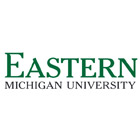- News and articles
- Find usIDP AustraliaIDP BahrainIDP BangladeshIDP CambodiaIDP CanadaIDP ChinaIDP EgyptIDP GhanaIDP Hong KongIDP IndiaIDP IndonesiaIDP IranIDP JordanIDP KenyaIDP KoreaIDP KuwaitIDP LebanonIDP MalaysiaIDP MauritiusIDP Middle EastIDP NepalIDP New ZealandIDP NigeriaIDP OmanIDP PakistanIDP PhilippinesIDP Saudi ArabiaIDP SingaporeIDP Sri LankaIDP Taiwan, ChinaIDP ThailandIDP TurkeyIDP UAEIDP VietnamIDP Corporate
- Social
- English
- Where we operate
- Courses
- Scholarships
- IELTS
- About IDP
- Student Essentials
- News and articles
- Find us
- Find us
- Find nearest IDP offices
- IDP Australia
- IDP Bahrain
- IDP Bangladesh
- IDP Cambodia
- IDP Canada
- IDP China
- IDP Egypt
- IDP Ghana
- IDP Hong Kong
- IDP India
- IDP Indonesia
- IDP Iran
- IDP Jordan
- IDP Kenya
- IDP Korea
- IDP Kuwait
- IDP Lebanon
- IDP Malaysia
- IDP Mauritius
- IDP Middle East
- IDP Nepal
- IDP New Zealand
- IDP Nigeria
- IDP Oman
- IDP Pakistan
- IDP Philippines
- IDP Saudi Arabia
- IDP Singapore
- IDP Sri Lanka
- IDP Taiwan, China
- IDP Thailand
- IDP Turkey
- IDP UAE
- IDP Vietnam
- IDP Corporate
- Social
- Language Switcher
- IDP Education /
- Colleges and Universities /
- United States /
- Eastern Michigan University /
- Bachelor of Science in Geot...


Location
United States
Qualification
Bachelor Degree
Fees
USD15792
(2025)
Duration
4 Year(s)
Next intake
08 May 2025
Entry Score
6.0
IELTSCourse info
- Scholarships
- Internships
Course fees are indicative and should be used as a guide. to get an accurate price.
Duration: 4 Year(s)
Fees: USD15792
| Intake | Location |
|---|---|
| Summer (May), 2026 | Ypsilanti |
| Winter (January), 2027 | Ypsilanti |
| Summer (May), 2027 | Ypsilanti |
| Fall (August), 2026 | Ypsilanti |
| Fall (August), 2025 | Ypsilanti |
| Summer (May), 2025 | Ypsilanti |
| Winter (January), 2026 | Ypsilanti |
Entry requirements for Eastern Michigan University
Meet the minimum requirement of 2.0 cumulative High School Grade Point Average or higher (on a 4.0 scale) for consideration.
EMU uses a test-optional admissions model for first-year admission.
A student with a cumulative high school GPA of 2.75 or higher will not be required to submit a standardized test score.
A student with a cumulative high school GPA of 2.5-2.74 will be considered test-optional. Upon review of application and academic history, standardized test scores may be requested if required.
At student with a cumulative high school of 2.49 and below will be required to submit a test score.
Official transcripts are required for all admission consideration
Accepted tests and minimum scores required
SAT Evidence-based Reading and Writing Subscore (EBRW): 480
ACT English Subscore: 19
TOEFL: 61 iBT (TOEFL Home Edition also accepted)
IELTS: 6.0 (IELTS Indicator also accepted)
Michigan English Test (MET): 48
Pearson English Language Test (PTE): 44
Duolingo: 95
Application Deadline
The application deadline isn't available Speak to an IDP counsellor for more detailed information
Further information
If you aren't eligible for the above entry requirements, you might ant to explore pathway options at Eastern Michigan University. If you want to find out more, speak to our counsellors.
What our students think
We’ve haven’t received any reviews for this institution yet.
Recommended for you
- Advanced Certificate
- Hayward , United States
- Next intake:08/2025
- Entry Score: IELTS 6.0
- USD9442 (2025)
- THE World Ranking:351
- Advanced Certificate
- Philadelphia , United States
- Next intake:08/2025
- Entry Score: IELTS 6.0
- USD16956 (2025)
- THE World Ranking:1201
- Combined Baccalaureate and Master's Prog
- Kalamazoo , United States
- Next intake:05/2025
- Entry Score: IELTS 6.0
- USD18942 (2025)
- THE World Ranking:1201
- Combined Baccalaureate and Master's Prog
- Kalamazoo , United States
- Next intake:05/2025
- Entry Score: IELTS 6.0
- USD18942 (2025)
- THE World Ranking:6
- Combined Baccalaureate and Master's Prog
- Stanford , United States
- Next intake:09/2025
- Entry Score: IELTS 6.0
- USD61731 (2025)
- THE World Ranking:6
- Combined Baccalaureate and Master's Prog
- Stanford , United States
- Next intake:09/2025
- Entry Score: IELTS 6.0
- USD61731 (2025)
- Advanced Certificate
- Los Altos Hills , United States
- Next intake:09/2025
- Entry Score: IELTS 5.5
- USD9936 (2025)
- Advanced Certificate
- Los Altos Hills , United States
- Next intake:09/2025
- Entry Score: IELTS 5.5
- USD9936 (2025)
Your action plan
Step 1
Shortlist your courses
Choose the best three courses you’re most likely to pursue.
Step 2
Check your eligibility
Get an instant in-principle offer for courses with the IDP FastLane tag.
Step 3
Apply through IDP Live
Fill out the form once and use it to apply to multiple courses.
How does IDP FastLane work?
With the FastLane 'Offer in Principle', you'll know in minutes if you'll be accepted!
Select an institution and course
Create your academic profile
Submit your application for an 'Offer in Principle'
Your chosen institution(s) will send you a decision in minutes!
Get ready to apply with an expert counsellor




